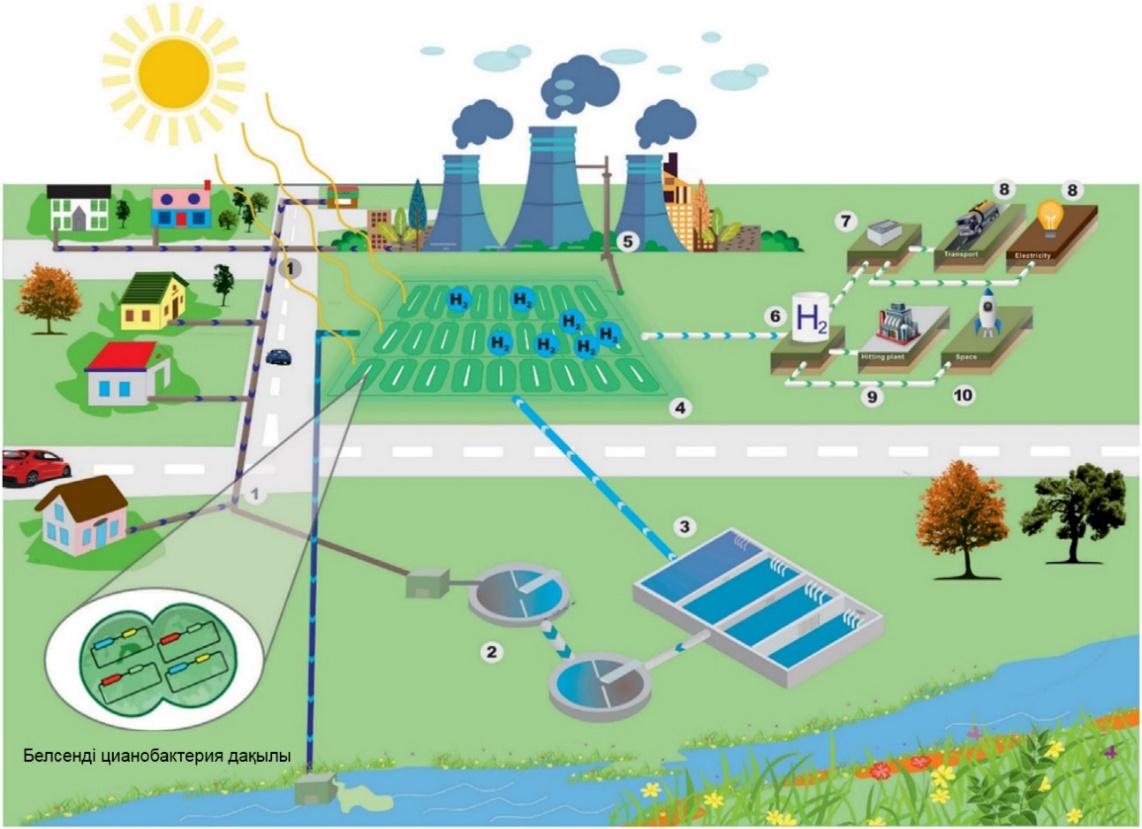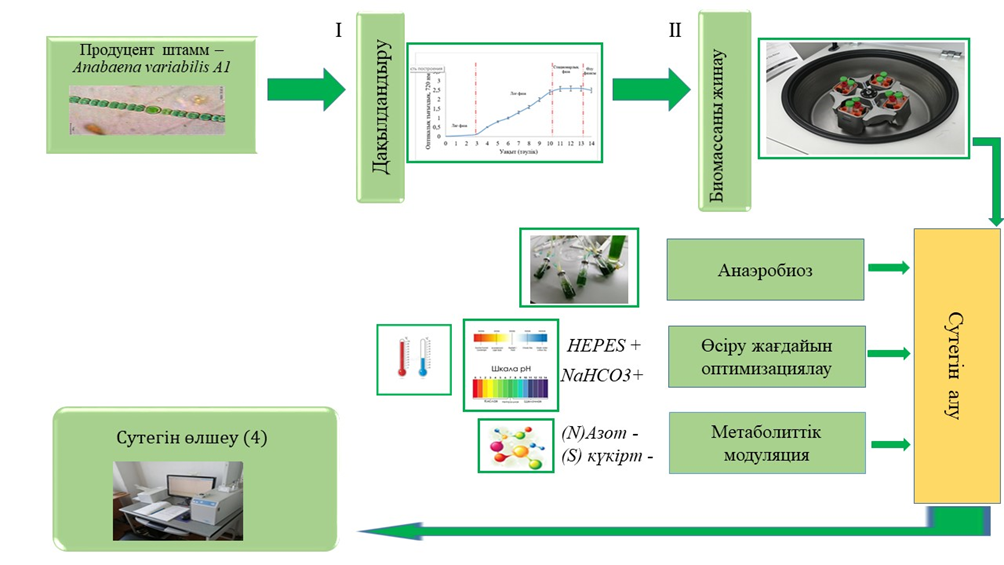A technology for producing biohydrogen from cyanobacteria (SDG 7. Ensure access to affordable, reliable, sustainable and modern energy)
The Department of Biotechnology has successfully completed research project AP09260785 (0123RK00131), aimed at developing an innovative technology for producing biohydrogen from promising cyanobacterial strains. This project marks significant progress in bioenergy, offering a clean, renewable energy source that can minimize carbon emissions and reduce environmental impact.
During the project, scientists identified and studied cyanobacterial strains collected from various ecosystems in Kazakhstan, including hot springs, water bodies, and rice fields. Particular attention was given to photosynthetic microorganisms capable of efficiently converting solar energy into hydrogen. As a result, eight axenic cyanobacterial cultures were isolated, including Anabaena variabilis and Synechococcus sp., which demonstrated high biomass yields and hydrogen productivity. The highest hydrogen yield was achieved with the strain Anabaena variabilis A-1, producing 8.67 μmol H₂/mg chl/h in dark conditions—a result 17 times greater than in light conditions.
Through experimentation, scientists optimized cultivation conditions, discovering that adding HEPES and sodium bicarbonate to the BG0-11 nutrient medium significantly enhanced hydrogen productivity in Anabaena variabilis A-1. The BG0-11-S medium was also found to be highly effective, achieving biohydrogen yields of up to 9.82 μmol H₂/mg chl/h—several times higher than with other medium modifications.
As a result of the project, a laboratory protocol for hydrogen production was developed, and a patent was obtained for utility model No. 8167 dated February 28, 2023, establishing the unique properties of the Anabaena variabilis A-1 strain as a promising biofuel source.
This project’s completion underscores the importance and relevance of using cyanobacteria in bioenergy and paves the way for a sustainable future, where biohydrogen can become a vital component of the global energy system.

